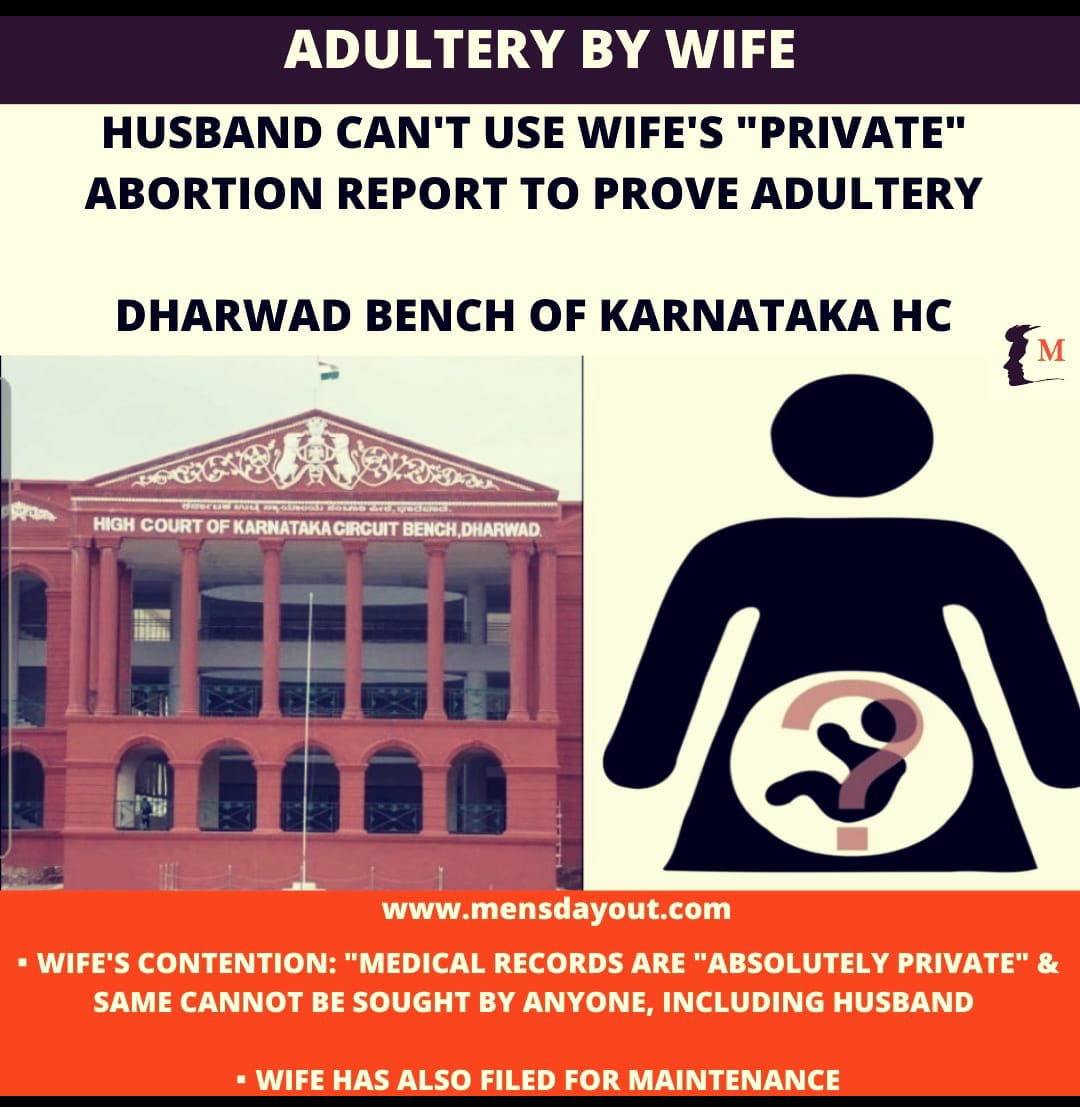A Single judge of Karnataka High Court (Dharwad bench) held as thus…
(If it feels like biased/pre-judged, I too felt the same)
20. Having heard the learned counsel for the parties, the following issue arises for consideration in this writ petition. Whether, it is permissible for a Family Court to summon the medical records of a spouse on the request of the other spouse, especially when it pertained to records relating to any procedures relating to the reproductive choices of the spouse?
Illogical Reasoning of the Court:
22. Regulation 7.14 of the Regulation, 2002, upon which, reliance was placed is a reflection of this declaration. The said regulation reads as follows : 7.14. The registered medical practitioner shall not disclose the secrets of a patient that have been learnt in the exercise of his/her profession except
i) in a court of law under orders of the Presiding Judge;
ii) in circumstances where there is a serious and identified risk to a specific person and / or community ; and
iii) notifiable diseases. In case of communicable / notifiable diseases, concerned public health authorities should be informed immediately.23. As could be seen in Regulation 7.14 of the Regulations, 2002, there is an absolute embargo on the medical practitioner from disclosing the secrets of a patient that comes within the knowledge of the medical practitioner during the discharge of his professional duties.
24. To this embargo, however, there are three exceptions. The first exception, with which we are concerned, is when a presiding Judge passes an order calling upon the medical practitioner to divulge a secret that he is aware of regarding his patient. Thus, unless there is a specific order of a Judge presiding over a Court of law, no medical practitioner can disclose the secrets that he has become privy to during the discharge of his professional duties.
25. Merely because a Court of law possesses that power to direct the medical practitioner to divulge a secret confided with a medical practitioner, that power would not and should not be exercised merely for the asking or routinely. The power to direct a medical practitioner to act in violation of his declaration should be exercised only for strong and compelling reasons and would be more or less be exercised only when an element of public interest was involved.
26. The Courts, therefore, cannot direct medical practitioners to disclose the secrets that they are privy to Divorce proceeding, by their very nature, is adversarial and more often than not a bitter and acrimonious battle, at times initiated to tarnish the reputation of the warring spouse. Thus, the power of the Court to direct the medical practitioners to divulge secrets that are confided to them should be exercised very sparingly and only for exceptional reasons.
27. In order to get over the bar imposed on the medical practitioners to disclose the secrets of the patients to which they are privy, the Courts should not be asked to exercise their power to secure medical records. If this is permitted, it would mean the Medical practitioner is required to divulge the secrets that the patient has disclosed to him contrary to his professional ethics only because an adversary in litigation wishes to use it to non-suit the other.
28. It is to be kept in mind that the medical records of an individual are very private and are not for public consumption. If the medical record of a person is private to him, a direction to his medical practitioner to produce the medical records or divulge any secret that he is privy to it would essentially amount to infringing the fundamental right of privacy guaranteed to an individual, which emanates from the Right to Life granted under Article 21 of Constitution of India.
Conclusions:
Gayatri alias Gadigevva Vs Vijay Hadimani on 03 Dec 202140. The Doctor, even if summoned, cannot by the production of medical records, assist the Court in concluding as to whether the wife had voluntary sexual intercourse with a person other than the husband. If the husband can prove that he had no access to his and if he can establish that his wife had or was having any illicit sexual relationship with another person, the same will have to be established by appropriate evidence as provided under the Evidence Act.
41. In any event, the illicit relationship of a spouse cannot be proved by securing his or her private medical records. In fact, if this approach is to be accepted, it would amount to the destruction of the entire concept of Doctor and patient confidentiality and also drag the Doctor into a marital dispute.
Citations :
Other Sources :
https://indiankanoon.org/doc/54113030/
https://www.casemine.com/judgement/in/61c2b9899fca1942b75d83b1
https://www.lawyerservices.in/Gayatri–Gadigevva-Versus-Vijay-2021-12-03
Lower Family Court Divorce Case details:
(: KADW03-000434-2017)

Related News:
Jan 3, 2022, 05:05 IST
https://timesofindia.indiatimes.com/india/medical-records-private-cant-be-used-to-prove-adultery-karnataka-hc/articleshow/88655481.cms
Jan 3, 2022, 05:36 IST
https://timesofindia.indiatimes.com/city/bengaluru/cant-use-medical-records-to-prove-spouses-relationship-dharwad-bench-of-karnataka-hc/articleshow/88655662.cms
